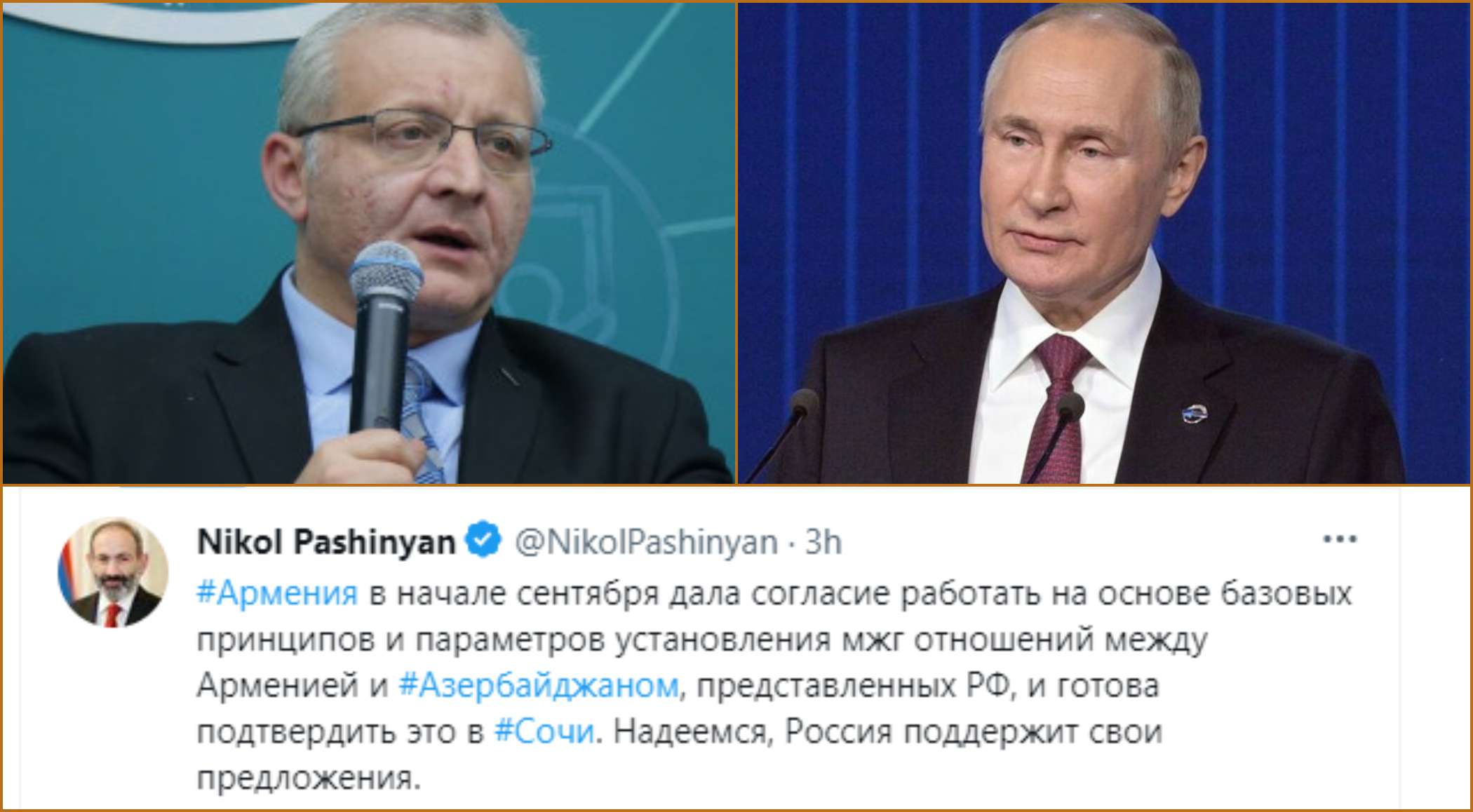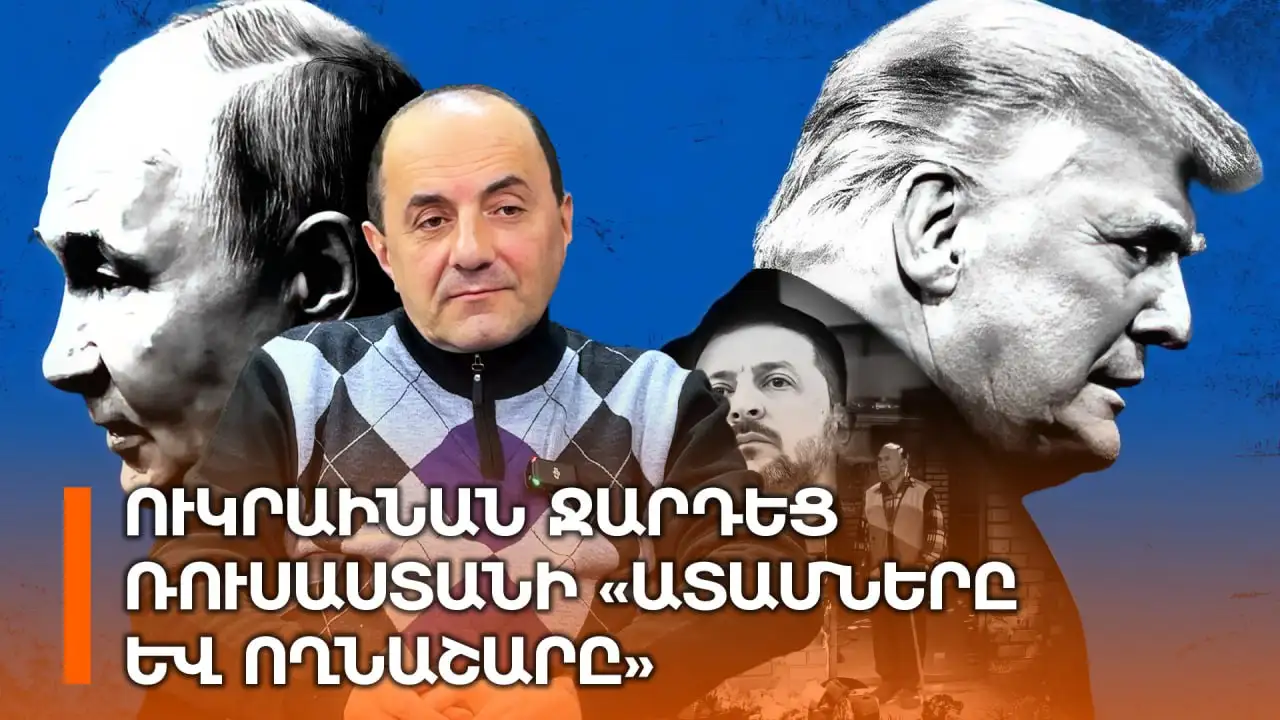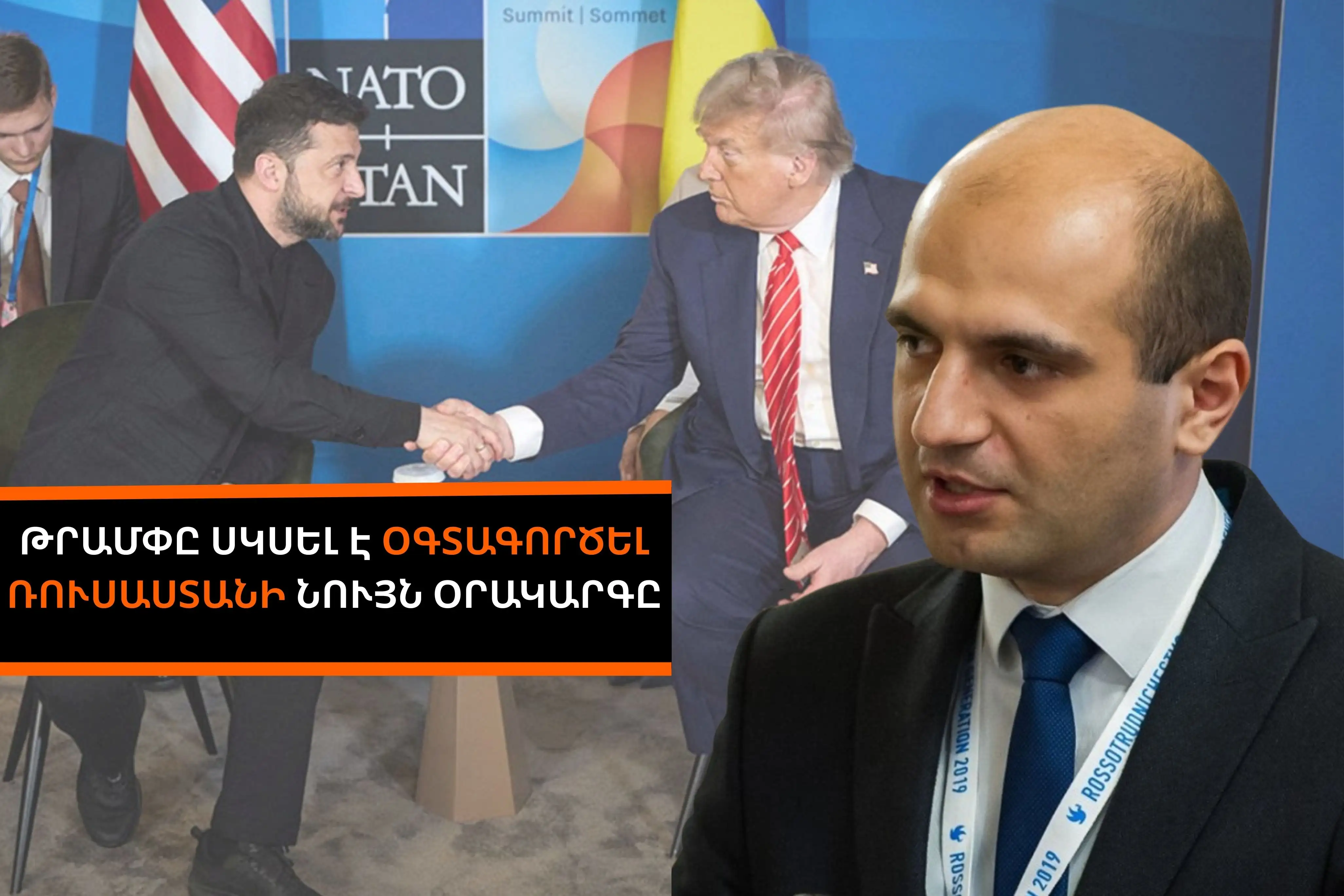Yesterday, Radar Armenia spoke with political scientist and leader of the "Democratic Alternative" party, Suren Surenyants, about the statements of Russian President Vladimir Putin, the response of the Armenian side, and other issues.
- How would you interpret the part of Russian President Vladimir Putin's speech regarding the process of regulating Armenian-Azerbaijani relations?
- There are several clear messages there. The first message was what I insisted on several times in the interviews you gave, independently of Putin's speech. In essence, yesterday reaffirmed the claim that Russia has never given guarantees to Armenia that it guarantees the pre-war status quo. On the contrary, he said that for a long time, the Armenian authorities rejected the proposal for the return of those regions, to put it more simply, the "Lavrov plan," which led to this situation. Secondly, Putin did not make a new revelation about the Western settlement negotiations either. The Western settlement program emphasizes the perspective of the settlement of Armenian-Azerbaijani relations, which also implies the expulsion of Russia from the region. And this is the reason why the issue of Artsakh is essentially ignored on the Brussels platform. If you remember, it should have been mentioned in the quadripartite declaration. And, if the document formulations about the subjectivity and security of Nagorno-Karabakh are not included in the document on the regulation of Armenian-Azerbaijani relations, Artsakh will be depopulated. Putin was talking about it yesterday.
- Yesterday, Russian President Vladimir Putin announced that if Armenia prefers the Washington version of relations with Azerbaijan, which implies the recognition of the sovereignty of Karabakh as part of Azerbaijan, the Russian Federation will support any choice of Yerevan. What does this mean that there is a different position on the Karabakh issue than the Western position with the proposals of the Russian Federation?
- Of course, yesterday, he did not say what Russia will do for Karabakh. Except for what we understood, Russia strives to maintain today's status quo in the matter of Artsakh. It was about that in 2020. In the tripartite statement of November 9, the Nagorno-Karabakh entity, the peacekeeping mission, etc., are mentioned. It is clear that if the West strives for no Russian peacekeepers, Russia is also trying to freeze the status issue to create an opportunity to maintain its mission in NK or the region for a long time.
- Today, Nikol Pashinyan reaffirmed in a tweet that Armenia agreed to work on the principles and parameters of establishing interstate relations between Armenia and Azerbaijan presented by Russia. What is the result? Armenia has refused the so-called "Washington" proposals.
- To be honest, you should ask the representatives of the authorities that question because there are differences between the two platforms. Possible differences refer to more than just the regulation of Armenian-Azerbaijani relations. Let's get it right, if the moderation of both sides is accepted, the strategic orientation of Armenia will also change, or it will remain the same. In other words, if we accept Russian moderation, the vector of RA's foreign policy will remain the same; if we refuse that moderation, we will take Western moderation, and a question of strategic change will arise. Therefore, the government of Armenia cannot approve both options. At any stage, the official Yerevan, let alone Azerbaijan, will have to work under the moderation of Moscow or Brussels. There is indeed a contradiction here. Again, I would like to stick to my opinion, which I told you about in my conversation; the Armenian government is working on delaying time and putting the regulation of relations with Azerbaijan below the internal political situation. The Prime Minister made that note not so much because Armenia has decided to work with Russian mediation but mainly because Putin's statement yesterday caused Pashinyan to fear that internal political upheavals may occur in Armenia.
- In the background of these statements, Toivo Klaar, the special representative of the European Union in the South Caucasus, is in Armenia. How will you interpret this?
- Armenia has found itself in a rather unenviable situation. And there are pressures on Armenia from different geopolitical centers. Putin's speech yesterday can be considered pressure, indirect pressure. It is also an indirect pressure that the United States obliges the region's countries to evaluate the dangerous Russian-Iranian cooperation in their own words. And massive diplomatic efforts are required from Armenia to neutralize these conflicts and manage the risks. Otherwise, we may have serious security risks.
- Do you consider Toivo Klaar's visit in this context?
- I don't know why Klaar came to Armenia now. But isn't it evident that there is a marked contrast between the geopolitical centers? The activity of both parties is a consequence of this.
Hayk Magoyan




















